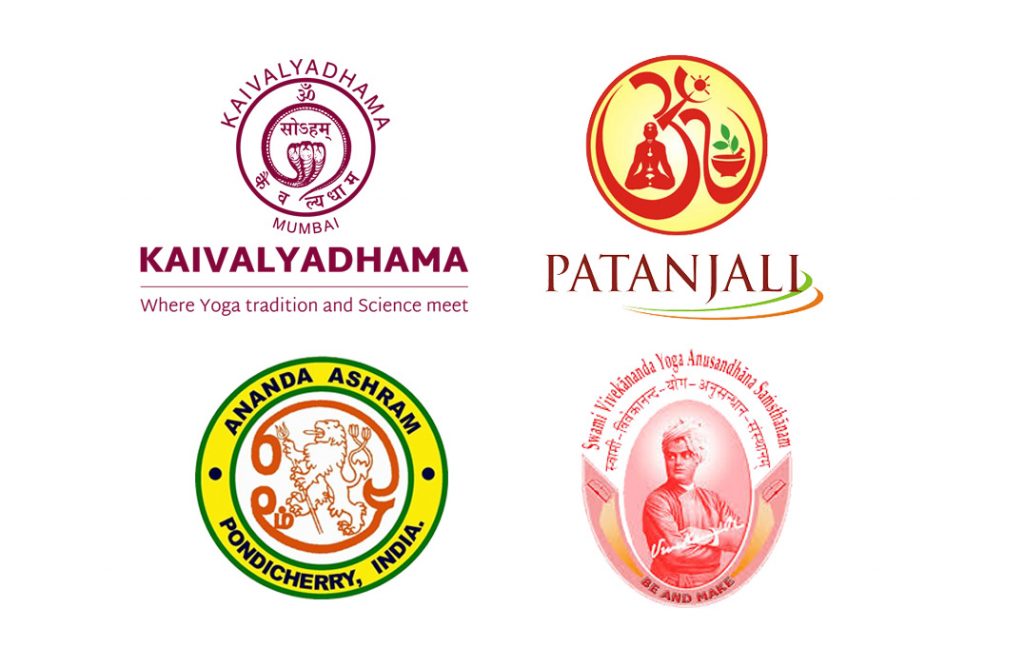From the Annals of Yoga Research
Research is extremely important to support different approaches to health care. In the recent past, Yoga has been gaining lot of attention as Yoga Institutes, reseachers, scholars have started offering substantive clinical research evidence. In this issue, Indian Yoga Association brings to you the Research Papers published by our Member Institutes and other Institutes or individuals on Benefits of Yoga in during COVID -19 Pandemic
Kaivalyadhama
Impact of residential yoga training on occupational stress and health promotion in principals
Author: Anita Verma, Sanjay Uddhav Shete, Gururaj Doddoli
Published In: Journal of Education and Health Promotion
Published On: February 2020
Abstract
BACKGROUND: Occupational stress is known as harmful physical and emotional responses that occur when the requirements of the job do not match the resources, needs, or capabilities of an employee, leading to poor mental and physical health.
OBJECTIVE: The objective of the present study was to assess the effect of 1‑week residential yoga training program on occupational stress and its subscales among principals.
METHODS: Thirty‑three principals with ages 40–59 years completed the assessment. They received yoga training at Kaivalyadham Yoga Institute. All the participants were recruited by Kendriya Vidyalaya Sangathan as part of their on‑duty yoga training. At the baseline and after 1 week of yoga training participants were assessed for occupational stress. The yoga intervention was given in the morning and evening for 105 min. Apart from yoga training, all the participants were engaged in lectures based on stress management, yoga for total health, meditation, yoga in school education, and scientific basis of yoga, daily for 3 h.
RESULTS: The principals showed a significant decrease in role overload (P < 0.001), role ambiguity (P < 0.01), role conflict (P < 0.05), under participation (P < 0.001), powerlessness (P < 0.001), intrinsic impoverishment (P < 0.01), law status (P < 0.001), and overall occupational stress (P < 0.001) after 7 days of yoga training intervention. However, there was no significant change in unreasonable group and political pressure (P > 0.05), responsibility for persons (P > 0.05), poor peer relations (P > 0.05), strenuous working conditions (P > 0.05), and unprofitability (P > 0.05) after yoga training intervention.
CONCLUSION: The present study suggests that 1 week of residential yoga training program can improve occupational stress in principals.
Effect of yoga practice session and yoga theory session on state anxiety
Author: Shirley Telles, Vaishali Gaur, Acharya Balkrishna
Published In: PubMed
Published On: December 2009
ABSTRACT
Yoga techniques practiced for varying durations have been shown to reduce state anxiety. In this study, there were 300 naive-to-yoga persons of both sexes who were attending a yoga therapy center in north India for stress relief as day visitors and were not residing at the center. They were assigned to two groups, yoga practice and yoga theory, and their state anxiety was assessed before and after a 2-hr. yoga session. A significant reduction in scores on state anxiety was found in the yoga practice group (14.7% decrease), as well as in the yoga theory group (3.4% decrease). The difference in scores following the sessions was statistically significant. Hence, yoga practice as well as learning about theoretical aspects of yoga appear to reduce state anxiety, with a greater reduction following yoga practice.
Swami Vivekananda Yoga Anusandhana Samsthana
Role of Yoga based stress management program towards leadership development in managers
Authors: Padmavati Maharana, Dr Sanjib Patra, Dr. T M Srinivasan, Dr. H R Nagendra
Published In: IOSR Journal of Business and Management
Published On: Volume 16, Issue 5. Ver. II (May. 2014)
Abstract: Billions are spent in the west as well as in the east for leadership programs. The question also arises what kind of strategic interventions are really effective. Till date a specific model is not available to answer the above queries. With this back ground, the present study aims to find out how far the Yoga intervention has brought transformation in leaders. A five day Self Management of Excessive Tension (SMET) program, based on the five layer model espoused by yoga theory and is believed to facilitate improvements in qualities required in leadership development. Multi-factor Leadership Questionnaire (MLQ) was used for assessment of 62 managers on Oil and Natural Gas Corporation. A significant improvement (p<0.05) in the attributes of the managers is observed in the pre-post results. This empirical study can be a solution and could introduce a new paradigm in the field of leadership development.
The Art of Living
Sudarshan Kriya Yoga: Breathing for Health
Author: Sameer A. Zope and Rakesh A Zope
Published In: International Journal of Yoga
Published On: 2013
Abstract: Breathing techniques are regularly recommended for relaxation, stress management, control of psychophysiological states, and to improve organ function. Yogic breathing, defined as a manipulation of breath movement, has been shown to positively affect immune function, autonomic nervous system imbalances, and psychological or stress-related disorders. The aim of this study was to assess and provide a comprehensive review of the physiological mechanisms, the mind–body connection, and the benefits of Sudarshan Kriya Yoga (SKY) in a wide range of clinical conditions. Various online databases searched were Medline, Psychinfo, EMBASE, and Google Scholar. All the results were carefully screened and articles on SKY were selected. The references from these articles were checked to find any other potentially relevant articles. SKY, a unique yogic breathing practice, involves several types of cyclical breathing patterns, ranging from slow and calming to rapid and stimulating. There is mounting evidence to suggest that SKY can be a beneficial, low-risk, low-cost adjunct to the treatment of stress, anxiety, post-traumatic stress disorder, depression, stress-related medical illnesses, substance abuse, and rehabilitation of criminal offenders.
Disclaimer: The Research Papers have been selected by the Yogavani Content Team from a Google search for ‘Yoga and Stress’
